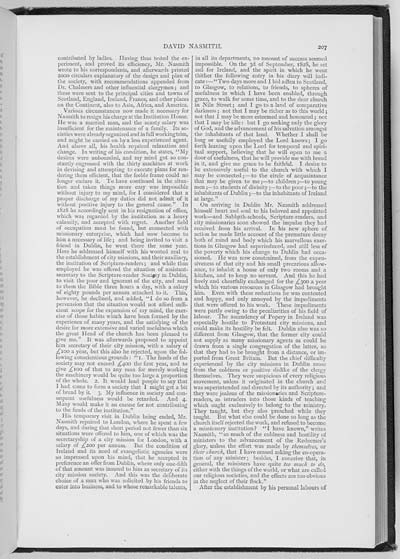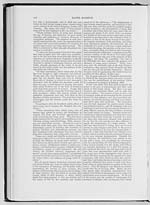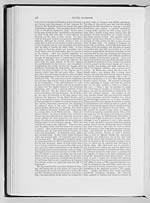207
contributed by ladies. Having thus tested the ex-
periment, and proved its efficiency, Mr. Nasmith
wrote to his correspondents, and afterwards printed
2000 circulars explanatory of the design and plan of
the society, with recommendations appended from
Dr. Chalmers and other influential clergymen; and
these were sent to the principal cities and towns of
Scotland, England, Ireland, France, and other places
on the Continent, also to Asia, Africa, and America.
Various circumstances now made it necessary for
Nasmith to resign his charge at the Institution House.
He was a married man, and the scanty salary was
insufficient for the maintenance of a family. Its so-
cieties were already organized and in full working trim,
and might be carried on by a less experienced agent.
And above all, his health required relaxation and
change. In writing of his condition, he states, "My
desires were unbounded, and my mind got so con-
stantly engrossed with the thirty machines at work
in devising and attempting to execute plans for ren-
dering them efficient, that the feeble frame could no
longer endure it. To have continued in the situa-
tion and taken things more easy was impossible
without injury to my mind, for I considered that a
proper discharge of my duties did not admit of it
without positive injury to the general cause." In
1828 he accordingly sent in his resignation of office,
which was regarded by the institution as a heavy
calamity, and accepted with regret. Another field
of occupation must be found, but connected with
missionary enterprise, which had now become to
him a necessary of life; and being invited to visit a
friend in Dublin, he went there the same year.
Here he addressed himself with his wonted zeal to
the establishment of city missions, and their auxiliary,
the institution of Scripture-readers; and while thus
employed he was offered the situation of assistant-
secretary to the Scripture-reader Society in Dublin,
to visit the poor and ignorant of the city, and read
to them the Bible three hours a day, with a salary
of eighty pounds per annum attached to it. This,
however, he declined, and added, "I do so from a
persuasion that the situation would not afford suffi-
cient scope for the expansion of my mind, the exer-
cise of those habits which have been formed by the
experience of many years, and the satisfying of the
desire for more extensive and varied usefulness which
the great Head of the church has been pleased to
give me." It was afterwards proposed to appoint
him secretary of their city mission, with a salary of
�100 a year, but this also he rejected, upon the fol-
lowing conscientious grounds: " I. The funds of the
society may not exceed �400 the first year, and to
give ;�100 of that to any man for merely working
the machinery would be quite too large a proportion
of the whole. 2. It would lead people to say that
I had come to form a society that I might get a bit
of bread by it. 3. My influence in society and con-
sequent usefulness would be retarded. And 4.
Many would make it an excuse for not contributing
to the funds of the institution."
His temporary visit in Dublin being ended, Mr.
Nasmith repaired to London, where he spent a few
days, and during that short period not fewer than six
situations were offered to him, one of which was the
secretaryship of a city mission for London, with a
salary of �200 per annum. But the condition of
Ireland and its need of evangelistic agencies were
so impressed upon his mind, that he accepted in
preference an offer from Dublin, where only one-fifth
of that amount was insured to him as secretary of its
city mission society. And this was the deliberate
choice of a man who was solicited by his friends to
enter into business, and to whose remarkable talents,
in all its departments, no amount of success seemed
impossible. On the 3d of September, 1828, he set
sail for Ireland, and the spirit in which he went
thither the following entry in his diary will indi-
cate :�"Two days more and I bid adieu to Scotland,
to Glasgow, to relations, to friends, to spheres of
usefulness in which I have been enabled, through
grace, to walk for some time, and to the dear church
in Nile Street; and I go to a land of comparative
darkness; not that I may be richer as to this world;
not that I may be more esteemed and honoured; not
that I may be idle: but I go seeking only the glory
of God, and the advancement of his salvation amongst
the inhabitants of that land. Whether I shall be
long or usefully employed the Lord knows; I go
forth leaning upon the Lord for temporal and spiri-
tual support, believing that he will open to me a
door of usefulness, that he will provide me with bread
in it, and give me grace to be faithful. I desire to
be extensively useful to the church with which I
may be connected;�to the circle of acquaintance
that may be given to me;�to children;�to young
men;�to students of divinity;�to the poor;�to the
inhabitants of Dublin;�to the inhabitants of Ireland
at large."
On arriving in Dublin Mr. Nasmith addressed
himself heart and soul to his beloved and appointed
work�and Sabbath-schools, Scripture-readers, and
city missionaries soon showed the impulse they had
received from his arrival. In his new sphere of
action he made little account of the premature decay
both of mind and body which his marvellous exer-
tions in Glasgow had superinduced, and still less of
the poverty which his change to Dublin had occa-
sioned. He was now constrained, from the expen-
siveness of that city and his small precarious allow-
ance, to inhabit a house of only two rooms and a
kitchen, and to keep no servant. And this he had
freely and cheerfully exchanged for the �300 a year
which his various resources in Glasgow had brought
him. Even with these reductions he was contented
and happy, and only annoyed by the impediments
that were offered to his work. These impediments
were partly owing to the peculiarities of his field of
labour. The ascendency of Popery in Ireland was
especially hostile to Protestant city missions, and
could make its hostility be felt Dublin also was so
different from Glasgow, that the former city could
not supply as many missionary agents as could be
drawn from a single congregation of the latter, so
that they had to be brought from a distance, or im-
ported from Great Britain. But the chief difficulty
experienced by the city missions in Dublin arose
from the coldness or positive dislike of the clergy
themselves. They were suspicious of every religious
movement, unless it originated in the church and
was superintended and directed by its authority; and
they were jealous of the missionaries and Scripture-
readers, as intruders into those kinds of teaching
which ought exclusively to belong to the ministry.
They taught, but they also preached while they
taught. But what else could be done so long as the
church itself rejected the work, and refused to become
a missionary institution? "I have known," writes
Nasmith, "so much of the coldness and hostility of
ministers to the advancement of the Redeemer's
glory, unless the effort was made by themselves, or
their church, that I have ceased asking the co-opera-
tion of any minister; besides, I conceive that, in
general, the ministers have quite too much to do,
either with the things of the world, or what are called
our religious societies, and the effects are too obvious
in the neglect of their flock."
After the establishment by his personal labours of

![]() Universal Viewer |
Universal Viewer | ![]() Mirador |
Large image | Transcription
Mirador |
Large image | Transcription
![]()

